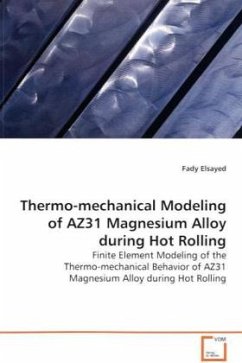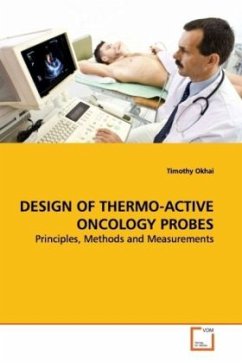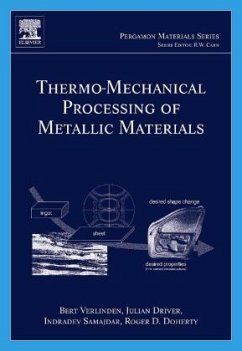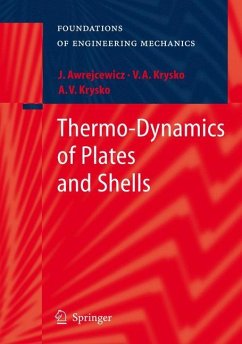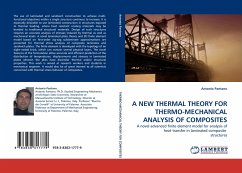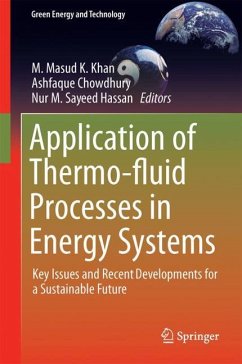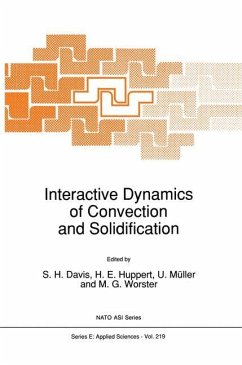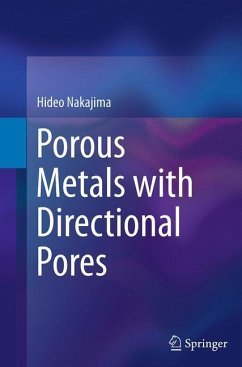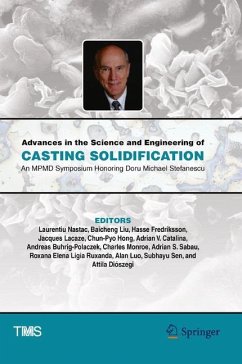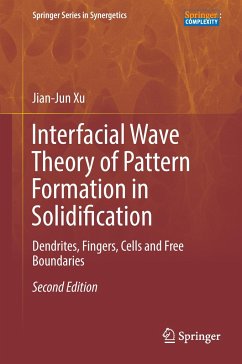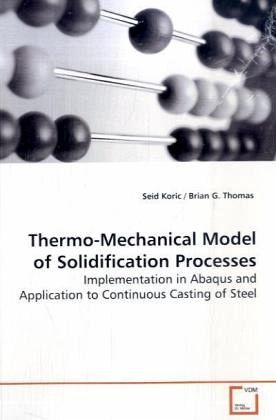
Thermo-Mechanical Model of Solidification Processes
Implementation in Abaqus and Application to Continuous Casting of Steel
Versandkostenfrei!
Versandfertig in 6-10 Tagen
45,99 €
inkl. MwSt.

PAYBACK Punkte
23 °P sammeln!
Many manufacturing and fabrication processes such asfoundry shape casting, continuous casting and weldinghave common solidification phenomena, such as thermalstress development. One of the most important and complex among them is continuous casting which produces 90% of steel today.A new computationally efficient algorithm has beenimplemented into the commercial package Abaqus usinga user-defined subroutine (UMAT) to solve for thermalstresses, strains, and displacements in realisticcontinuous casting processes which involve highlynonlinear constitutive relations. The model issuccessfully valid...
Many manufacturing and fabrication processes such as
foundry shape casting, continuous casting and welding
have common solidification phenomena, such as thermal
stress development.
One of the most important and complex among them is
continuous casting which produces 90% of steel today.
A new computationally efficient algorithm has been
implemented into the commercial package Abaqus using
a user-defined subroutine (UMAT) to solve for thermal
stresses, strains, and displacements in realistic
continuous casting processes which involve highly
nonlinear constitutive relations. The model is
successfully validated with available analytical
solidification solutions and applied to simulate
temperature and stress development of a solidifying
steel shell in several continuous casting molds under
realistic operating conditions. Besides continuous
casting, the model from this book can be a valuable
tool in modeling other classes of metal
and nonmetal materials with highly nonlinear
time-dependant constitutive laws.
foundry shape casting, continuous casting and welding
have common solidification phenomena, such as thermal
stress development.
One of the most important and complex among them is
continuous casting which produces 90% of steel today.
A new computationally efficient algorithm has been
implemented into the commercial package Abaqus using
a user-defined subroutine (UMAT) to solve for thermal
stresses, strains, and displacements in realistic
continuous casting processes which involve highly
nonlinear constitutive relations. The model is
successfully validated with available analytical
solidification solutions and applied to simulate
temperature and stress development of a solidifying
steel shell in several continuous casting molds under
realistic operating conditions. Besides continuous
casting, the model from this book can be a valuable
tool in modeling other classes of metal
and nonmetal materials with highly nonlinear
time-dependant constitutive laws.



